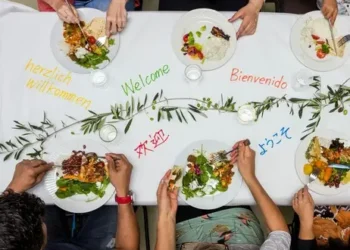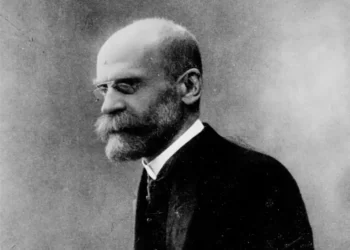Table of Contents
- Defining the Extended Family
- The Roles and Functions of Extended Families
- Cultural Variations in Extended Families
- Extended Families in Modern Societies
- Conclusion
Extended families have long been a fundamental component of human society, shaping the social, economic, and cultural fabric of communities. In sociology, the concept of the family is central to understanding how individuals are socialised, how they interact with others, and how societal structures are maintained. This article will explore the extended family structure, focusing on its roles and functions, the ways it differs across cultures, and its relevance in both traditional and modern societies. The extended family continues to serve as a key social institution, particularly in times of societal change and economic uncertainty.
Defining the Extended Family
The extended family is typically understood as a family unit that extends beyond the nuclear family (comprising two parents and their children) to include other relatives, such as grandparents, aunts, uncles, and cousins, who may or may not live in the same household. This structure often functions as a support network, offering economic, emotional, and social assistance to its members. In many societies, the extended family has been the dominant family form, particularly in pre-industrial settings where economic survival often depended on collective labour and shared resources.
Unlike the nuclear family, which is more individualistic and private, the extended family operates on principles of interdependence and communal responsibility. Members of an extended family often live in close proximity to one another or within the same household, facilitating regular interaction and mutual support. While the nuclear family has become more prevalent in industrialised Western societies, the extended family remains a significant part of family life in many cultures, including in the UK, where it continues to play a vital role in social cohesion, particularly among immigrant communities and those facing economic hardship.
The Roles and Functions of Extended Families
Socialisation and Cultural Transmission
One of the primary functions of the extended family is its role in socialising individuals, particularly children, into the norms, values, and behaviours of their society. In extended families, children are exposed to a wide range of role models, from grandparents to cousins, who contribute to their understanding of societal expectations and customs. This diversity of influence allows for a richer and more varied socialisation process compared to the nuclear family. For instance, grandparents often serve as the custodians of cultural traditions and heritage, passing down stories, religious beliefs, and social practices to younger generations.
In addition to cultural transmission, extended families offer a broader network of emotional and moral support. This is particularly important in situations where parents may be absent due to work or other commitments. Grandparents or other relatives can step in to provide care and guidance, ensuring that children receive continuous social and emotional support. In this way, the extended family helps maintain social stability by reinforcing communal values and ensuring the well-being of its members.
Economic Support and Collective Responsibility
Historically, extended families have functioned as economic units, pooling resources to ensure the survival and prosperity of the group. In agrarian and pre-industrial societies, for example, extended families often worked together to manage land, livestock, and household duties. This cooperative approach allowed family members to share labour and distribute the economic benefits, providing a safety net for those who might struggle to survive independently.
Even in modern societies, where economic independence is often emphasised, extended families can provide critical financial support. In the UK, this is especially relevant in immigrant communities, where family members may rely on one another for housing, childcare, or financial assistance when facing unemployment or low wages. The pooling of resources within an extended family can help individuals navigate economic challenges, particularly in the absence of comprehensive state welfare support. This collective responsibility ensures that family members who are less economically stable can still maintain a decent standard of living, reinforcing the family’s role as a buffer against economic insecurity.
Emotional Support and Caregiving
Beyond economic support, extended families are also crucial in providing emotional care, particularly for vulnerable members such as the elderly, the sick, or young children. In the UK, where ageing populations are becoming an increasingly prominent social issue, extended families often step in to fill the gaps left by formal institutions. Grandparents frequently take on childcare responsibilities, enabling parents to participate in the workforce without relying on costly external childcare providers. Similarly, adult children may take care of elderly parents, reducing the burden on state-funded healthcare systems.
This caregiving role not only strengthens family bonds but also contributes to the mental and emotional well-being of family members. The emotional security offered by an extended family can be particularly valuable in times of crisis, such as during illness, bereavement, or financial hardship. Extended families provide a social safety net, ensuring that members do not feel isolated or unsupported in difficult times. This emotional and psychological support reinforces the family’s central role in maintaining individual and social health.
Cultural Variations in Extended Families
Extended Families in Non-Western Societies
Extended families are often more prevalent and central in non-Western cultures, where family structures tend to be more collectivist rather than individualistic. In many African, Asian, and Middle Eastern societies, extended families are the norm, and the nuclear family is seen as a Western construct. In these cultures, the extended family serves as the primary unit of social organisation, and individual identity is closely tied to family membership and responsibilities.
For example, in many African societies, extended families often function as clans or tribes, with collective responsibility for the welfare of all members. This communal approach ensures that resources are shared, and individuals are supported throughout their lives, from birth to old age. Similarly, in South Asian cultures, it is common for several generations to live together under one roof, with family members contributing to the household both economically and in terms of caregiving. This system fosters a strong sense of duty and loyalty to one’s family, reinforcing intergenerational ties.
In contrast to Western individualism, where personal achievement and independence are often prioritised, collectivist cultures place greater emphasis on the group’s well-being. In these societies, the extended family is not just a social support network but also a means of maintaining cultural continuity and reinforcing social hierarchies. Elders, for example, hold significant authority in many extended families, and their wisdom and experience are highly valued.








